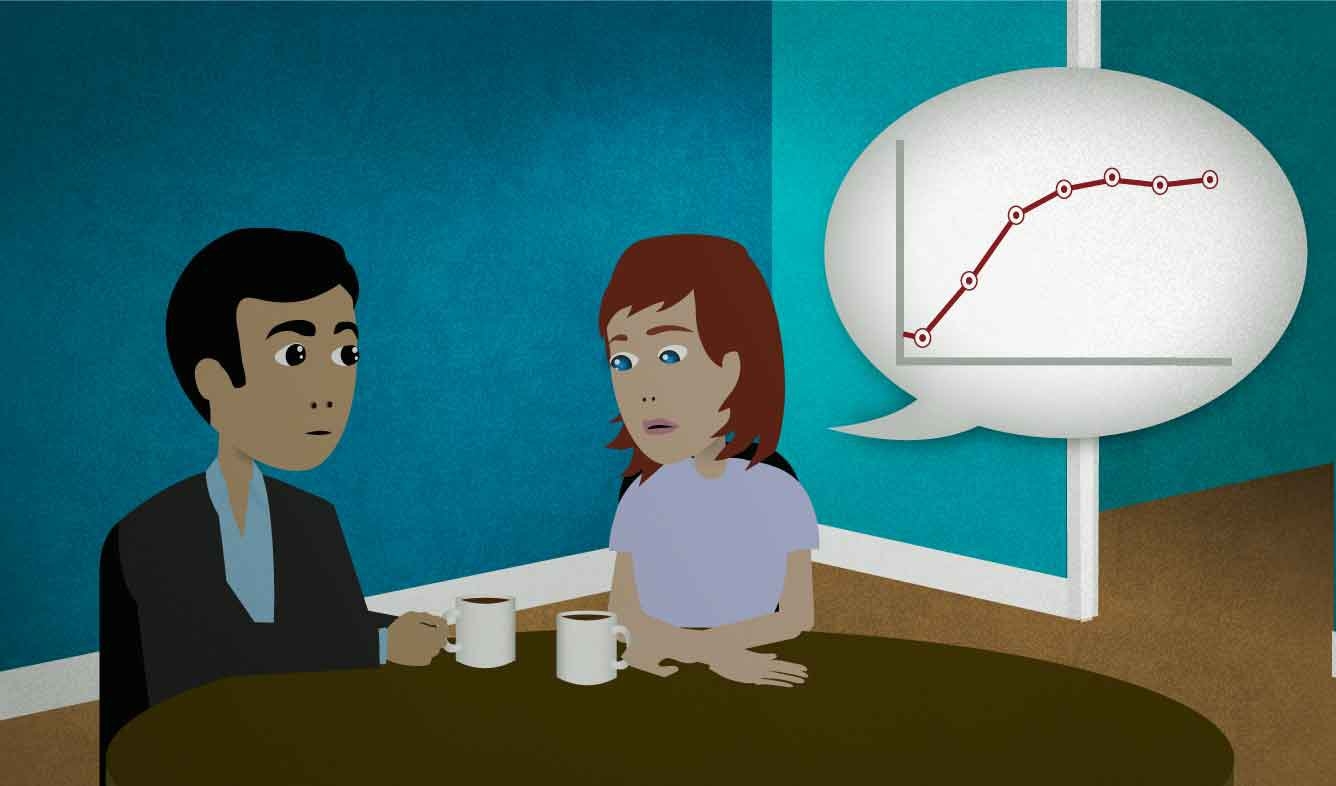“We were growing really rapidly for the first few months, but since then it’s evened off.”
You started a small business with a partner. You're talking with a friend, who asks about the business. You tell him that it's not doing as well as it was when you started.
We were growing really rapidly for the first few months, but since then it’s evened off.
Want Video and Sound? Follow us on YouTube

since (some event)
"Since" is used to talk about something that has happened after a certain time in the past.
You use "since" with "have":
I've loved him since I was 10 years old.
Haven't you eaten anything since lunch?
You don't use "since" with simple past tense verbs. Remember this! For example, "I loved him since I was 10" isn't correct.
If you were just talking about a point in the past, you can say "since then":
I moved out of my parents' place in 2003, and since then I've lived in 6 different apartments.
(a business) is growing rapidly
The word "rapid" means "fast" but is a little bit more formal.
You can say that a business is "growing rapidly" when then get bigger quickly, by:
- gaining lots of new customers
- hiring lots of new employees
- adding new store locations
...and so on.
(do something) for the first few (days/months/etc.)
You can talk about an early period of time with the phrase "for the first few ___".
For example, if a new employee has joined your team, you can suggest that they train with someone at first:
You should work with Sam and have him train you for the first few weeks.
As another example, you can talk about your first helicopter ride:
I was scared to death for the first few minutes.
(a number or amount) has evened off
When the number or amount of something stops changing, you can say that it has "evened off".
You can use this phrase when:
- a number or amount was getting bigger, but then it stops
- a number or amoun was getting smaller, but then it stops
As an example, think of the number of people who visit a beach each month. In the cold months, not many people visit. As the weather warms up, the number of visitors grows. Then, during the warmest months, the number of visitors "evens off". As it starts to get colder again, the number drops, and then evens off again in the coldest months.
